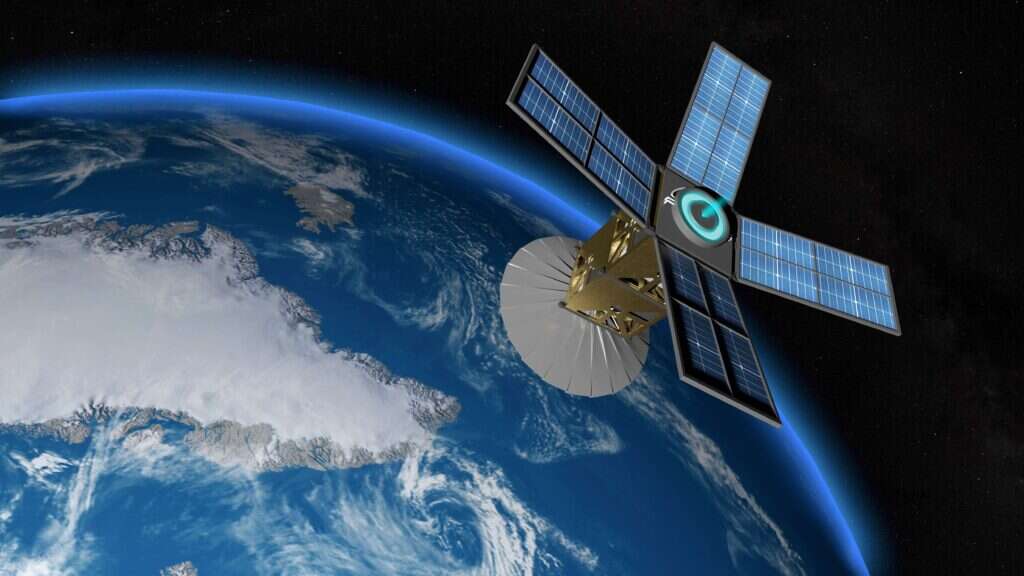
China is building cyber weaponry capable of seizing control of enemy satellites to jam them at crucial moments in combat, leaked CIA documents have revealed. While an anti-satellite cyber weapon in Beijing’s hands would be a worrying development, China’s continued efforts to covertly acquire or steal industrial intellectual property relating to space technology could be a more pressing issue for Western countries.

Beijing’s plans to build an anti-satellite weapon were uncovered in a trove of leaked classified documents, the FT reports. The CIA has assessed that China’s strategy of developing tools to “deny, exploit or hijack” enemy satellites is key to dominance in space, which it considers to be a “war-fighting domain”.
Chinese anti-satellite cyber weapon
The document is one of dozens reportedly leaked onto a Minecraft server on social app Discord earlier this month. US Air Guardsman Jack Teixeira, 21, has been arrested and charged with alleged unauthorised retention and transmission of national defence information in relation to the leak.
Weapons such as those described in the documents are a part of Beijing’s wider plan to assert dominance in space by 2045. The Chinese government published a white paper in 2021 entitled China’s Space Program: a 2021 Perspective , in which it lays out its plans “to explore the vast cosmos, develop the space industry and build China into a space power.”
China’s launching of satellites into space has since increased at pace. Over the last six months it has conducted 35 launches, “adding advanced communications and intelligence, surveillance, and reconnaissance satellites to their orbital architecture,” said General B Chance Saltzman, US chief of space operations said last month.
The country is also developing and deploying different constellations of dual-use military satellite and reconnaissance systems called Yaogan satellites, and has recently announced its intention to launch a large constellation of optical micro-satellites.
On Wednesday, Sir Jeremy Fleming, head of GCHQ expressed his worry about Beijing’s bid for tech dominance, telling the CyberUK conference in Belfast that “lumbering monsters” that the UK and its allies need to watch out for.
The role of satellites in conflict
China is not dominant in space yet. The US currently owns 1937 satellites, as opposed to China’s 182, according to Jonathan McDowell, an astrophysicist at the Harvard and Smithsonian Centre Centre for Astrophysics in Cambridge Massachusetts, in his report Space Activities in 2022.
Because of this, building of an anti-satellite weapon is not surprising, explains Georgia Osborn, senior research analyst at Oxford Information Labs. “It is not out of the realms of possibility,” she says. “We’ve seen how China has been very active in the space program, especially in the last few years. They’ve been experimenting a lot with AI in space as well and in the development of high tech satellites.”
Satellites have played a crucial role in the war in Ukraine, with SpaceX’s Starlink being used to enhance communications after the Viasat network was attacked at the start of the invasion. “We’re seeing satellites being used and also given and donated when communications are down,” explains Osborn. “Space is the next realm that people should be looking at in terms of cyber and military capabilities.”
Covert intellectual property acquisition
The technology being developed by China could be particularly problematic for Taiwan in the event of any invasion. However, Osborn says Western countries should have more pressing worries about Beijing’s forays into orbit.
“I do think there is more of a concern in terms of monitoring any covert acquisition of intellectual property, which is something that we really need to watch out for,” she says. Covert acquisition of intellectual property is a way of fast-tracking technological developments to assert further dominance in space.
The number of reported China-related espionage cases has significantly increased over the past two decades. And acquiring commercial technology makes up the majority (51%) of recently reported espionage cases, states a report by technology intelligence firm Dragonfly.
Chinese state agencies are likely to intensify their operations in the wider Asian region in the medium term. With more firms operating in sensitive sectors having reduced their presence in mainland China, Chinese threat actors will need to target companies abroad, the Dragonfly report says.
“I think there’s a real case for activity in space around covert attack acquisition and first mover advantage,” says Osborn.






